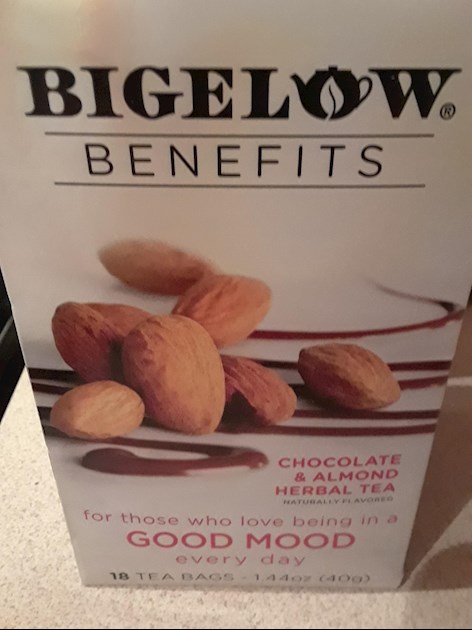I started trying different teas lately. The hot makes me calm and well often when I am high in my anxiety I dont eat much so at least Im hydrated. Anyway i have been drinking kava tea and another tea w St. Johns wart called Good Mood. I heard kava could be dangerous anyone aware of this?
Anyone tried these?: I started trying... - Anxiety and Depre...
Anyone tried these?

Yeah, Both of these herbals can be a problem, I have been an herbalist for over 40years, and Kava Kava and St. Johns Wort can be a problem. If your taking them for stress or for promoting a better sleep, I would suggest chamomile with a bit of lavender. Here's some facts about both the herbs your taking, please use caution if your taking both.
What other drugs will affect kava ()?
Before taking kava, tell your doctor if you are also using a sedative such as diazepam (Valium) or similar medicines such as alprazolam (Xanax), chlordiazepoxide (Librium), clorazepate (Tranxene), estazolam (ProSom), flurazepam (Dalmane), lorazepam (Ativan), midazolam (Versed), temazepam (Restoril), triazolam (Halcion), and others.
St. Johns wort can't be mixed with certain medications your taking.
this is the long list of possible interactions:
Possible Interactions with: St. John's Wort
Interactions
St. John's wort interacts with a large number of medications. In most cases, St. John's wort decreases the effectiveness of the medication; in other cases, however, St. John's wort may increase the effects of a medication.
If you are currently being treated with any of the following medications, you should not use St. John's wort without first talking to your doctor:
Antidepressants -- St. John's wort may interact with medications used to treat depression or other mood disorders, including tricyclic antidepressants, SSRIs, and monoamine oxidase inhibitors (MAOIs). Taking St. John's wort with these medications tends to increase side effects, and could potentially lead to a dangerous condition called serotonin syndrome. Do not take St. John's wort with other antidepressants, including:
SSRIs: Citalopram (Celexa), escitalopram (Lexapro), fluvoxamine (Luvox), paroxetine (Paxil), fluoxetine (Prozac), sertraline (Zoloft)
Tricyclics: Amitriptyline (Elavil), nortriptyline (Pamelor), imipramine (Tofranil)
MAOIs: Phenelzine, (Nardil), tranylcypromine (Parnate)
Nefazodone (Serzone)
Allergy drugs (antihistamines) -- St. John's wort may reduce levels of these drugs in the body, making them less effective:
Loratadine (Claritin)
Cetirizine (Zyrtec)
Fexofenadine (Allegra)
Dextromethorphan (cough medicine) -- When taken at the same time as dextromethorphan, a cough suppressant found in many over-the-counter cough and cold medicines, St. John's wort can increase the risk of side effects, including serotonin syndrome.
Digoxin -- St. John's wort may decrease levels of the medication and reduce its effectiveness. Do not take St. John's wort if you take digoxin.
Drugs that suppress the immune system -- St. John's wort can reduce the effectiveness of these medications, taken after organ transplant or to control autoimmune diseases. In fact, there have been many reports of cyclosporin blood levels dropping in those with a heart or kidney transplant, even leading to rejection of the transplanted organ.
Adalimumab (Humira)
Azathioprine (Imuran)
Cyclosporine
Etanercept (Enbrel)
Methotrexate
Mycophenolate mofetil (CellCept)
Tacrolimus (Prograf)
Drugs to fight HIV -- St. John's wort appears to interact with at least two kinds of medications used to treat HIV and AIDS: protease inhibitors and non-nucleoside reverse transcriptase inhibitors. The Food and Drug Administration recommends that St. John's wort not be used with any type of antiretroviral medication used to treat HIV or AIDS.
Birth control pills -- There have been reports of breakthrough bleeding in women on birth control pills who were also taking St. John's wort, and it is possible that the herb might interfere with the effectiveness of birth control pills, leading to unplanned pregnancies.
Reserpine -- Based on animal studies, St. John's wort may interfere with reserpine's ability to treat high blood pressure.
Sedatives -- St. John's wort can increase the effect of drugs that have a sedating effect, including:
Anticonvulsants such as phenytoin (Dilantin) and valproic acid (Depakote)
Barbiturates
Benzodiazepines such as alprazolam (Xanax) and diazepam (Valium)
Drugs to treat insomnia, such as zolpidem (Ambien), zaleplon (Sonata), eszopiclone (Lunesta), and ramelteon (Rozerem)
Tricyclic antidepressants such as amitriptyline (Elavil)
Alcohol
Theophylline -- St. John's wort can reduce levels of this medication in the blood. Theophylline is used to open the airways in those suffering from asthma, emphysema, or chronic bronchitis.
Triptans (used to treat migraines) -- St. John's wort can increase the risk of side effects, including serotonin syndrome, when taken with these medications:
Naratriptan (Amerge)
Rizatriptan (Maxalt)
Sumatriptan (Imitrex)
Zolmitriptan (Zomig)
Warfarin -- St. John's wort reduces the effectiveness of warfarin, an anticoagulant (blood-thinner).
Other drugs -- Because St. John's wort is broken down by certain liver enzymes, it may interact with other drugs that are broken down by the same enzymes. Those drugs may include:
Antifungal drugs, such as ketoconazole (Nizoral), itraconazole (Sporanox), fluconazole (Diflucan)
Statins (drugs taken to lower cholesterol)
Some calcium channel blockers (taken to lower blood pressure)
Wow, thanks for the information. I am currently not on any other meds but i will keep all this in mind. I have tried chamomile and lavender as well not sure if they do anything for me. I do spray lavender on my bed about an hour before going to bed. I also have some tea with chamomile. Thanks again for your response i appreciate it.
Herbals are more subtle in effect, they take a few weeks to build up in the body, Unlike pharmaceuticals which were synthesized in large part from plants, and have more immediate and much more powerful effects, often toxic side effects on the body. Herbs have been used for thousands of years all over the world. Examples are : aspirin come from willow bark, Valium comes from synthesizing the chemical effects of Valerian root. (Taxol) was made from the bark of the Pacific yew tree for chemotherapy, and Quinine was used as a muscle relaxant by the Quechua, and was found to help with malaria. The list goes on.